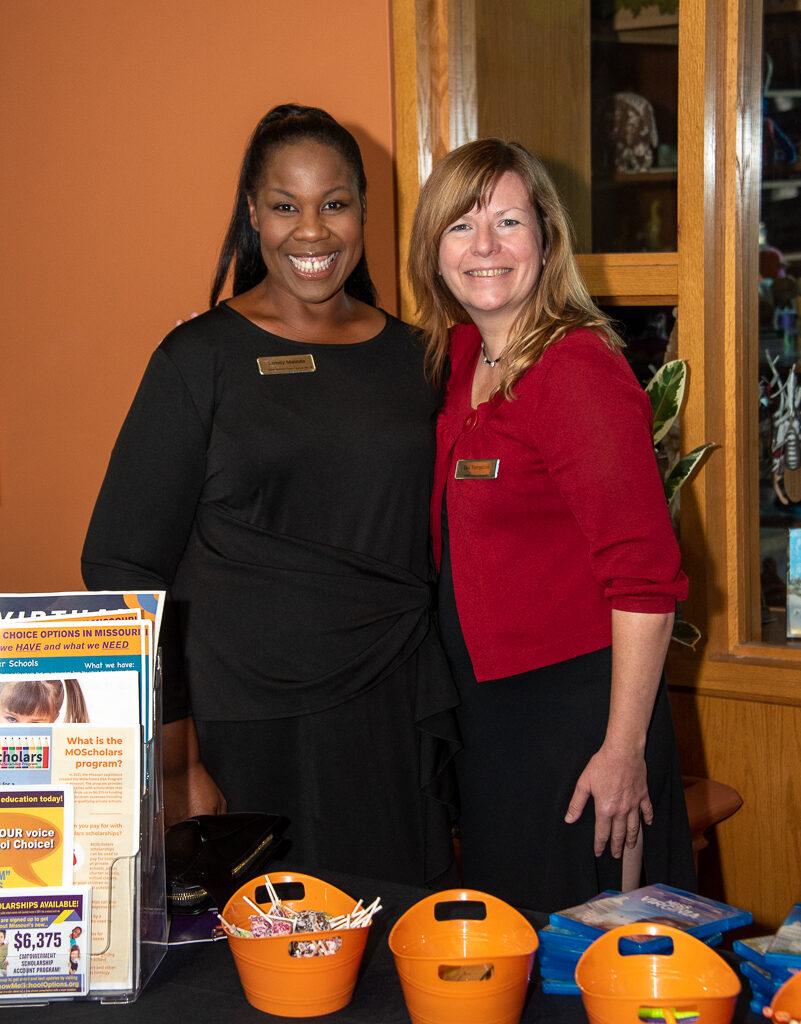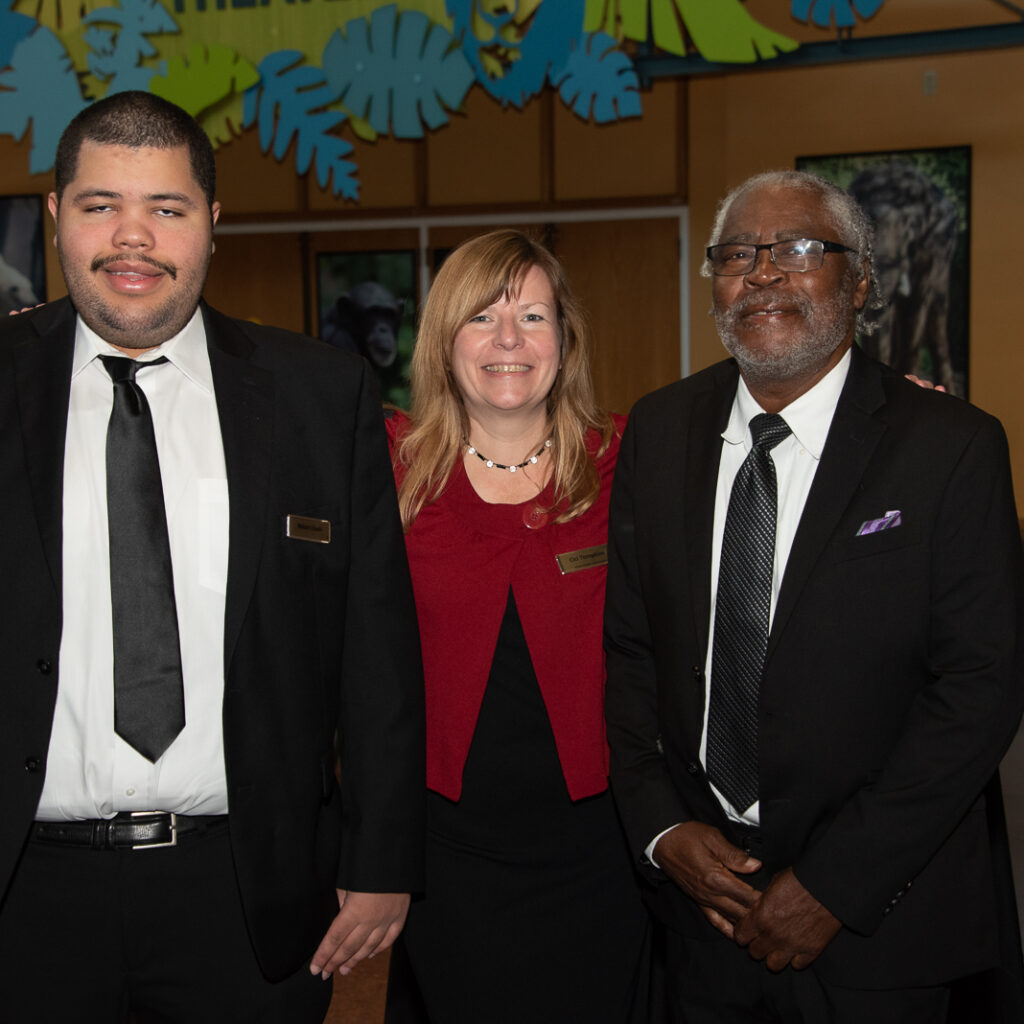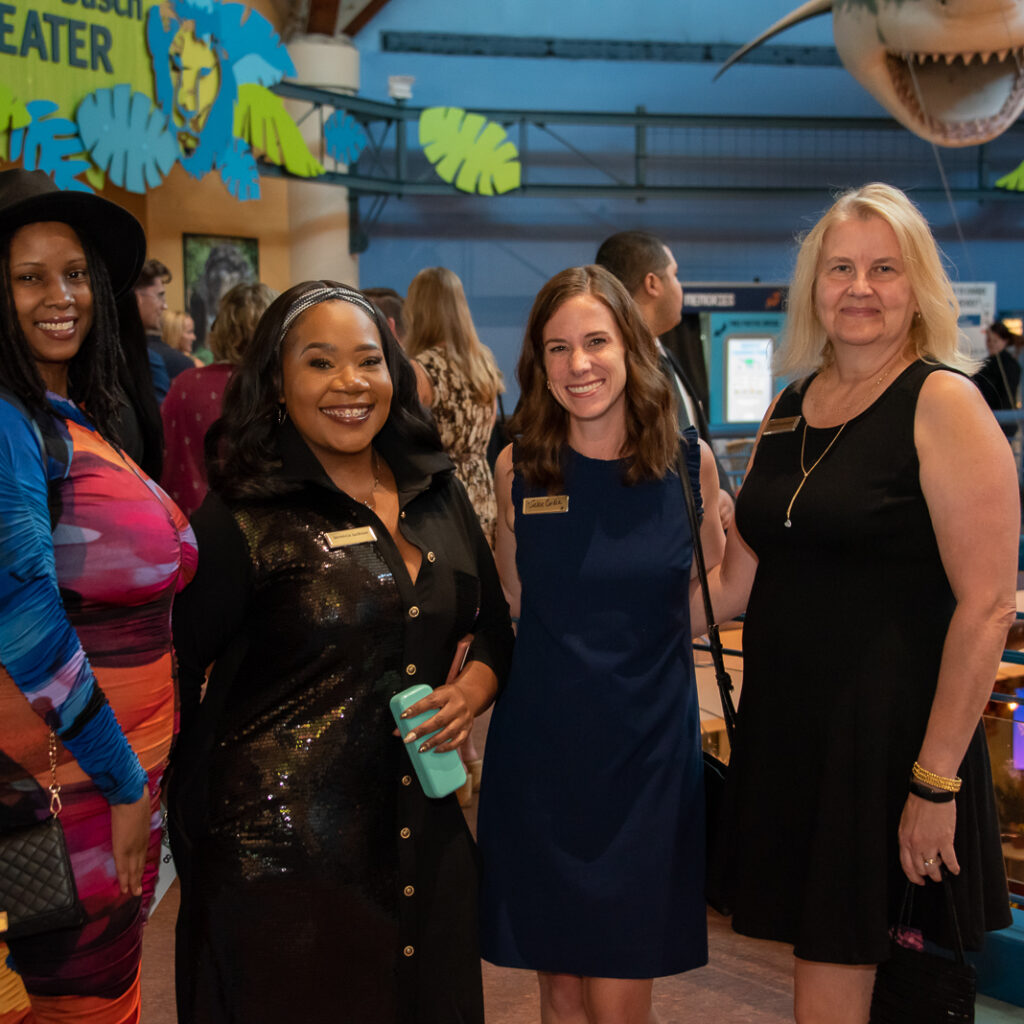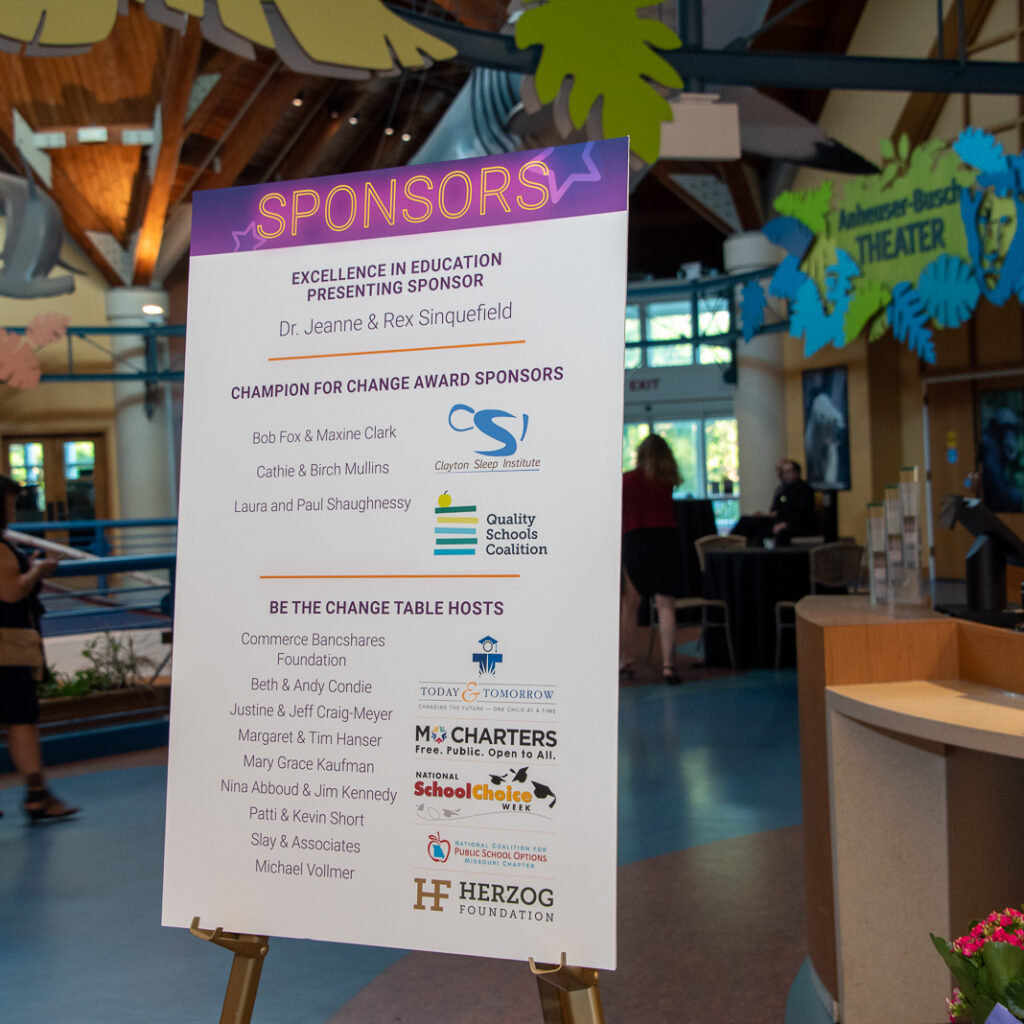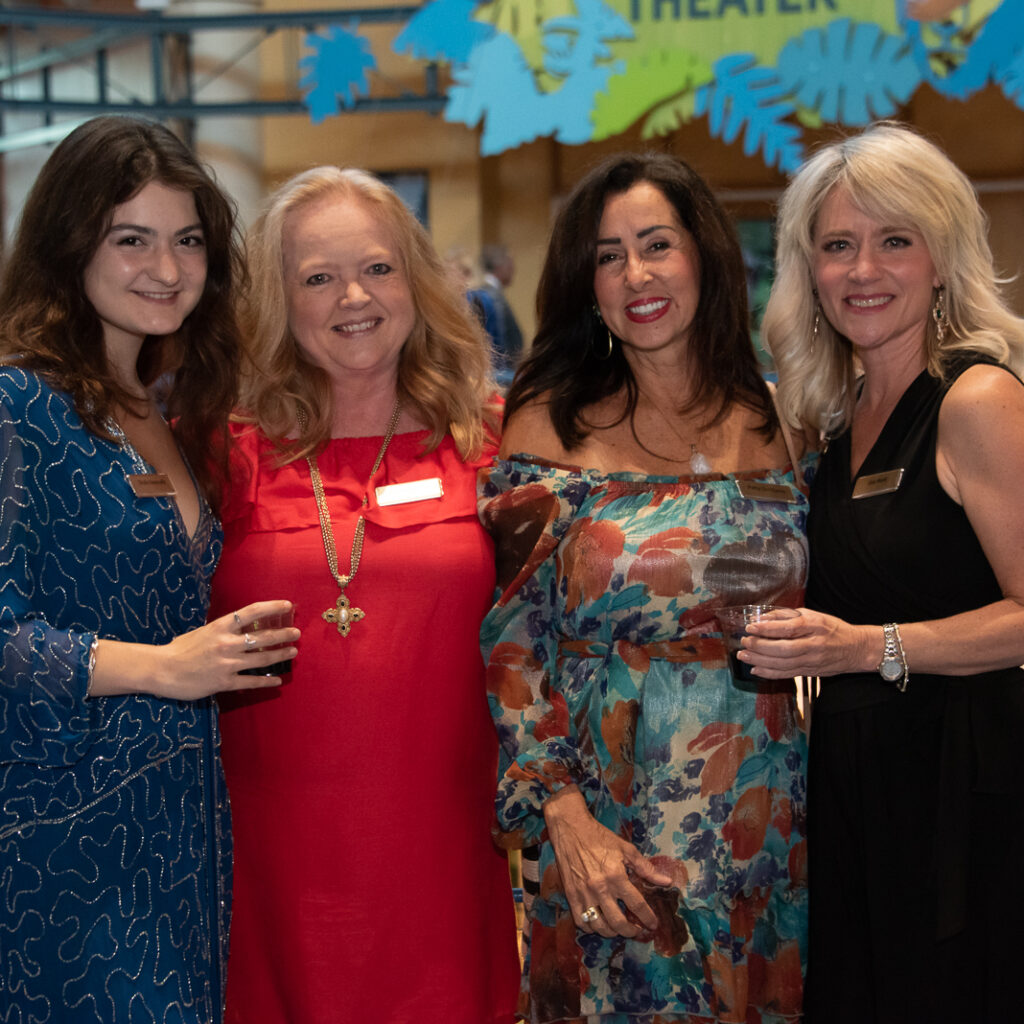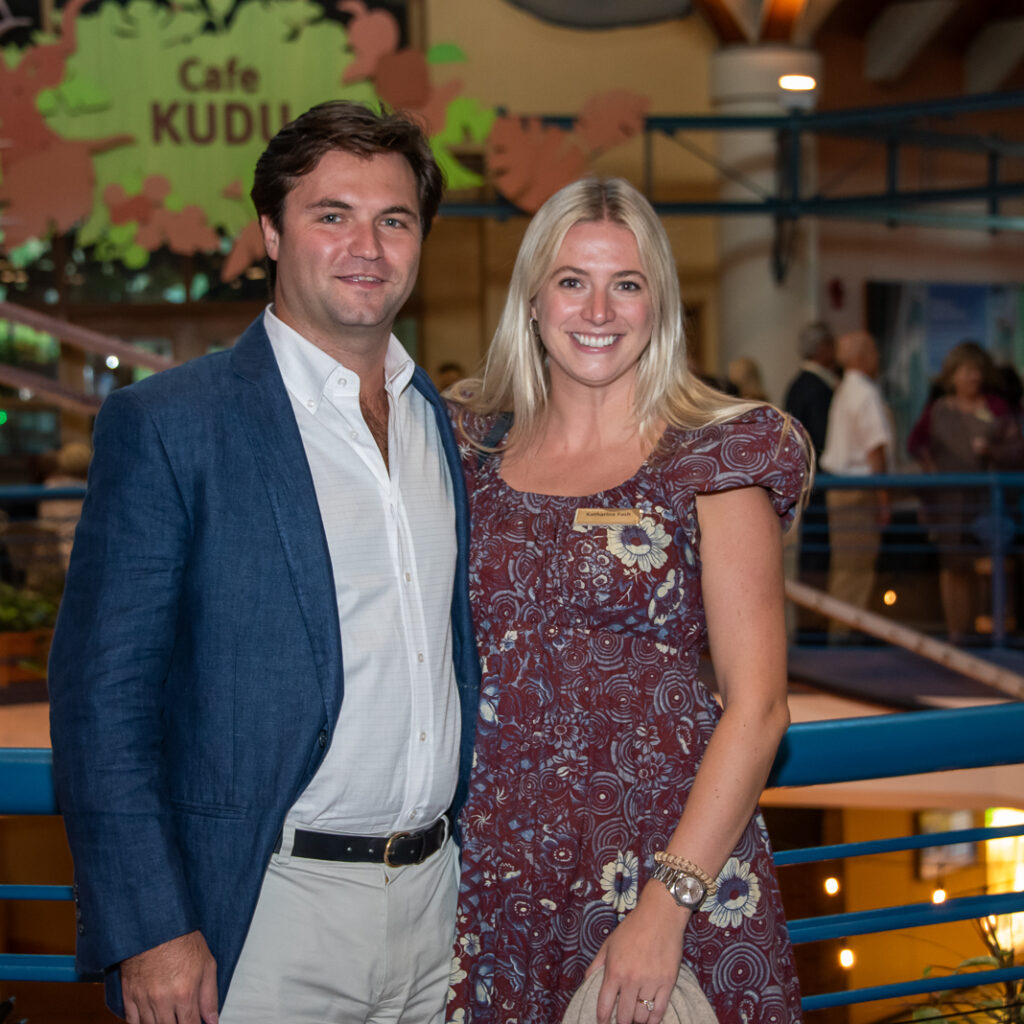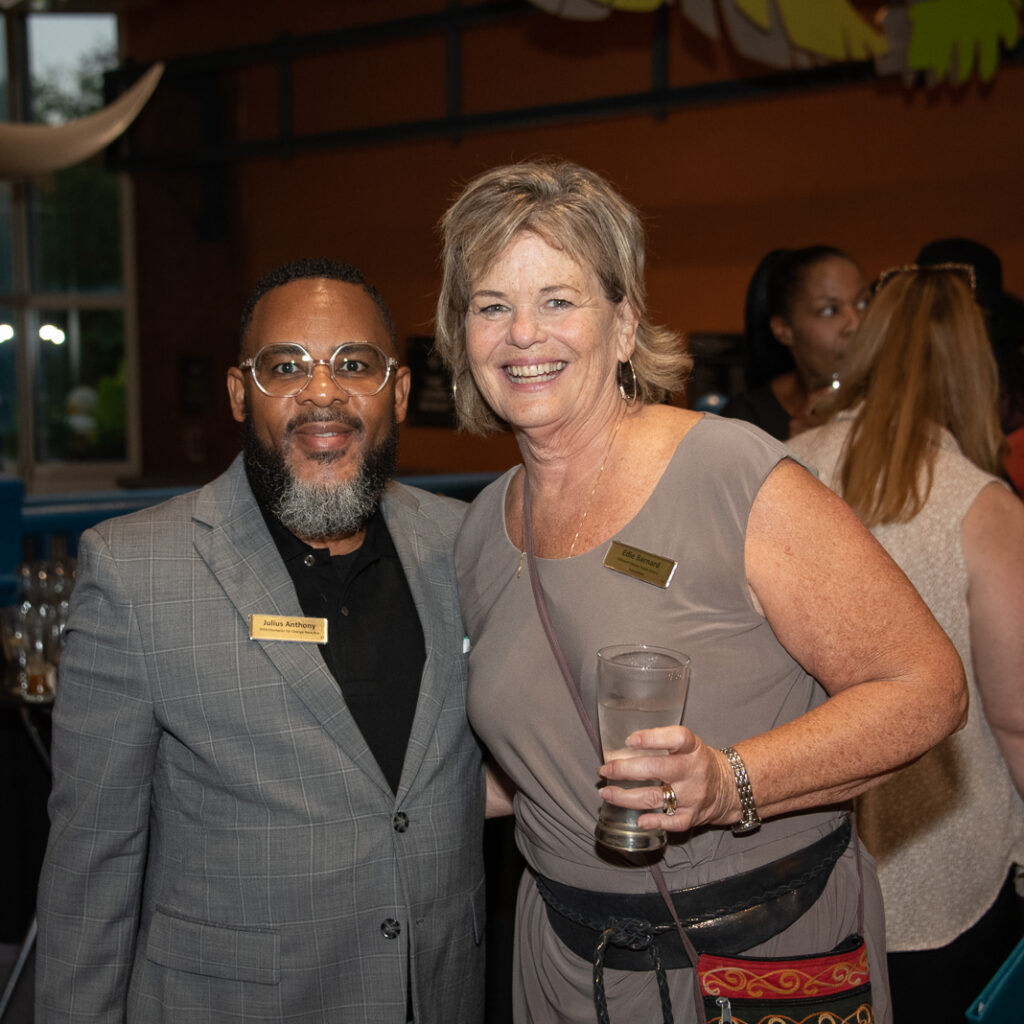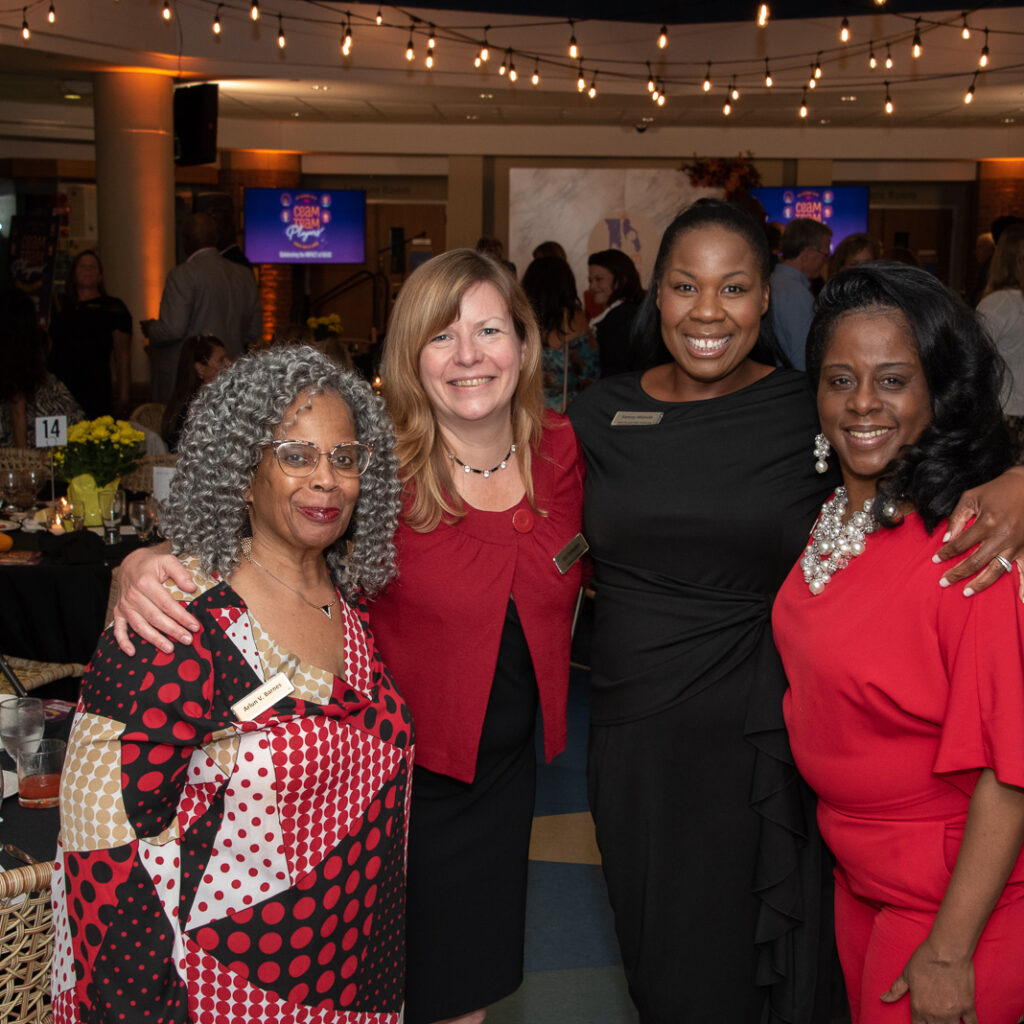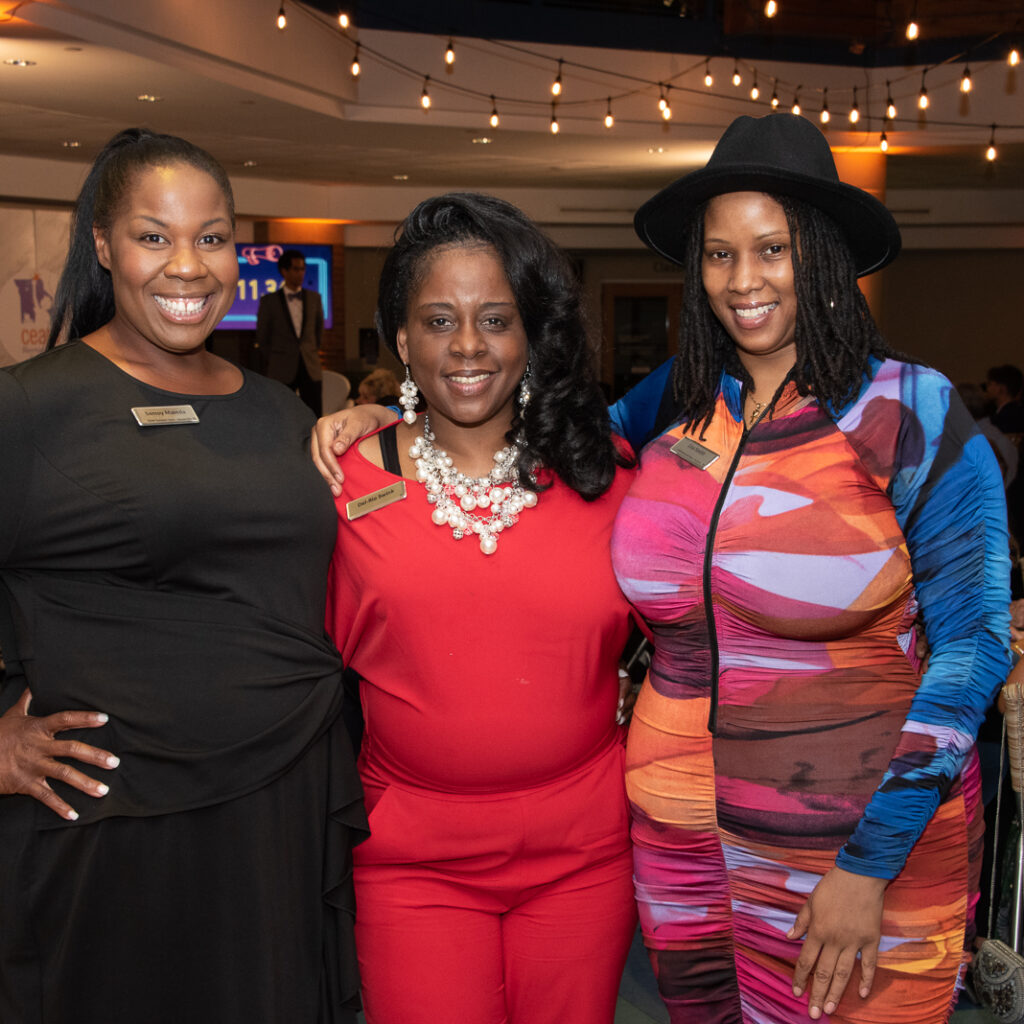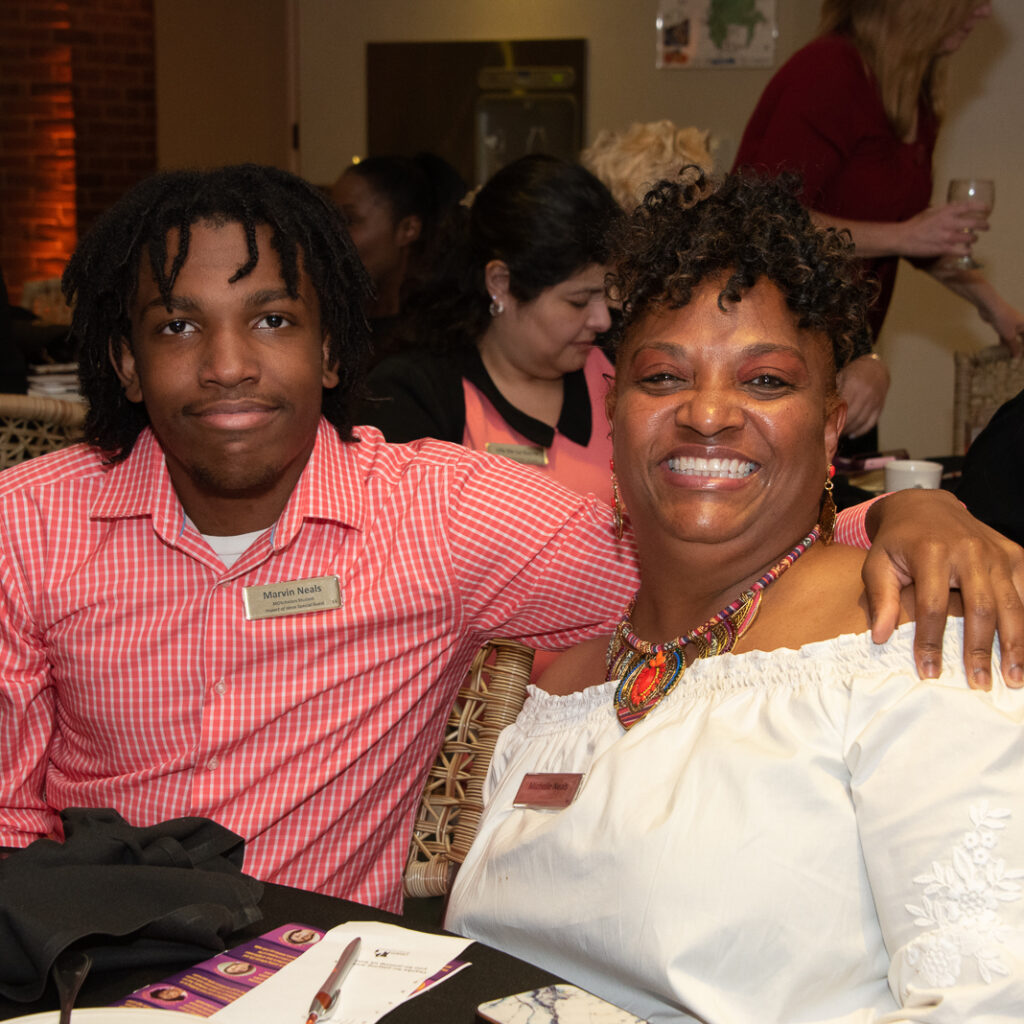CEAM celebrates the impact of ideas at the 2023 IDEA Gala
The Children’s Education Alliance of Missouri celebrated the impact that innovative ideas and access to choice-driven education programs have made in the lives of thousands of Missouri students during its 2023 IDEA Gala at the Sait Louis Zoo on October 5.
The event was a chance for new and long-time CEAM supporters to learn about what the organization does and how its programs and advocacy have helped to improve access to educational opportunities across the state.
The program highlighted the impact that charter schools, virtual education, and the MOScholars program have had on the state’s educational landscape and explored how new innovations like artificial intelligence and micro-schools can help to improve education in the future.
Modeled after a late-night talk show, the program was hosted by American Federation for Children Senior Fellow Shaka Mitchell with CEAM Associate Executive Director Peter Franzen serving as announcer and musical performances from Demetrius Beverly and his All-Star Band.
Celebrating the impact of charter schools
The first charter school in Missouri opened in St. Louis in 2000. Since that time CEAM has helped to expand where in the state charter schools can open and ensure that public charter school students receive the same level of state funding as traditional district school students.
To celebrate the impact charter schools have had in the state Shaka Mitchell interviewed KIPP (Knowledge is Power Program) St. Louis Executive Director Kelly Garrett and The Leadership School Founder Kimberly Townsend.
Townsend told the gala attendees how her personal experiences growing up had led to her desire to create a school where parents had a voice and the opportunity to participate.
“Charter schools allow that,” she said. “Charter schools allow for more innovation.”
Kelly Garrett explained how his experience with Teach for America had revealed the inequities in America’s public education system and led to his desire to provide a better alternative through charter schools.
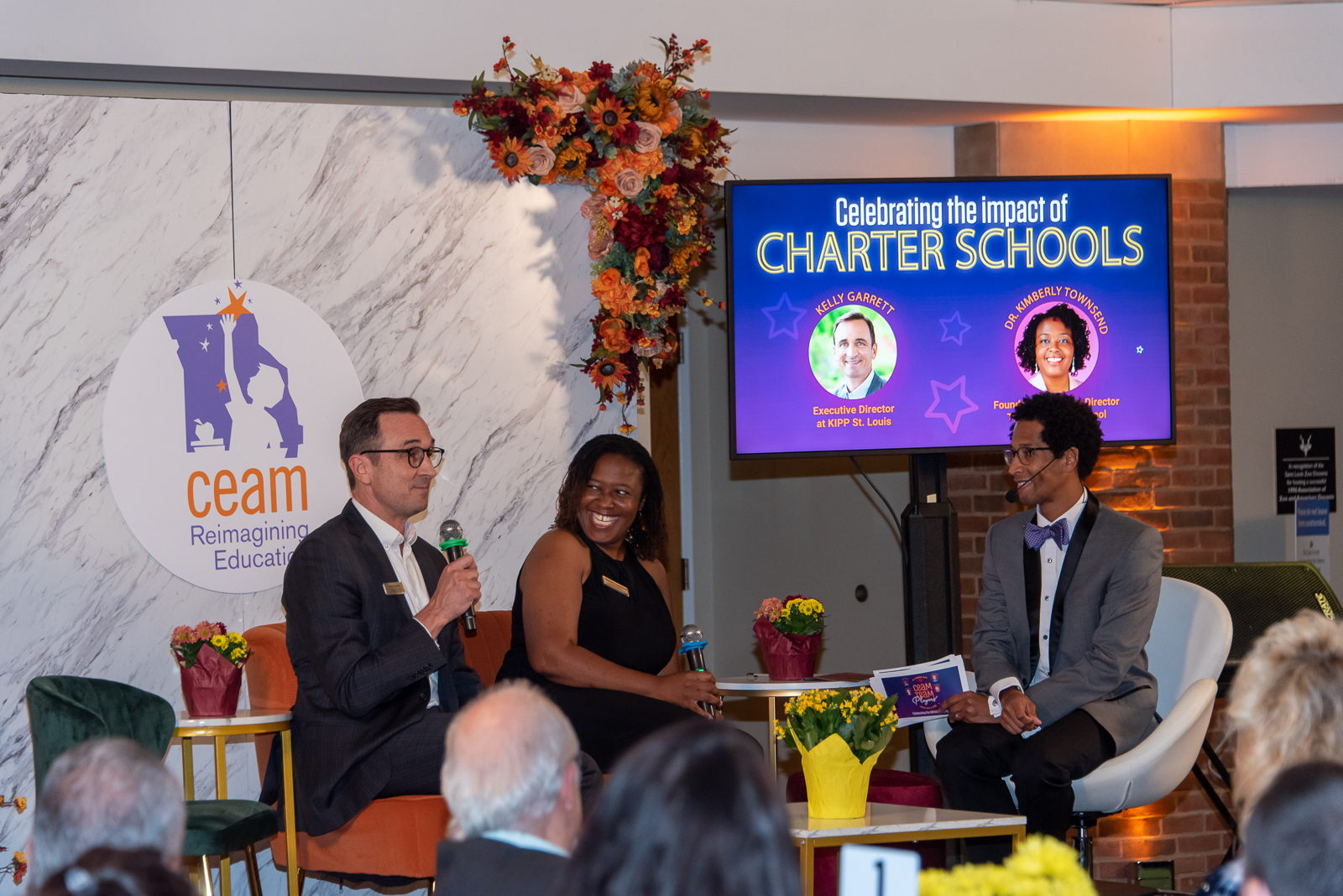
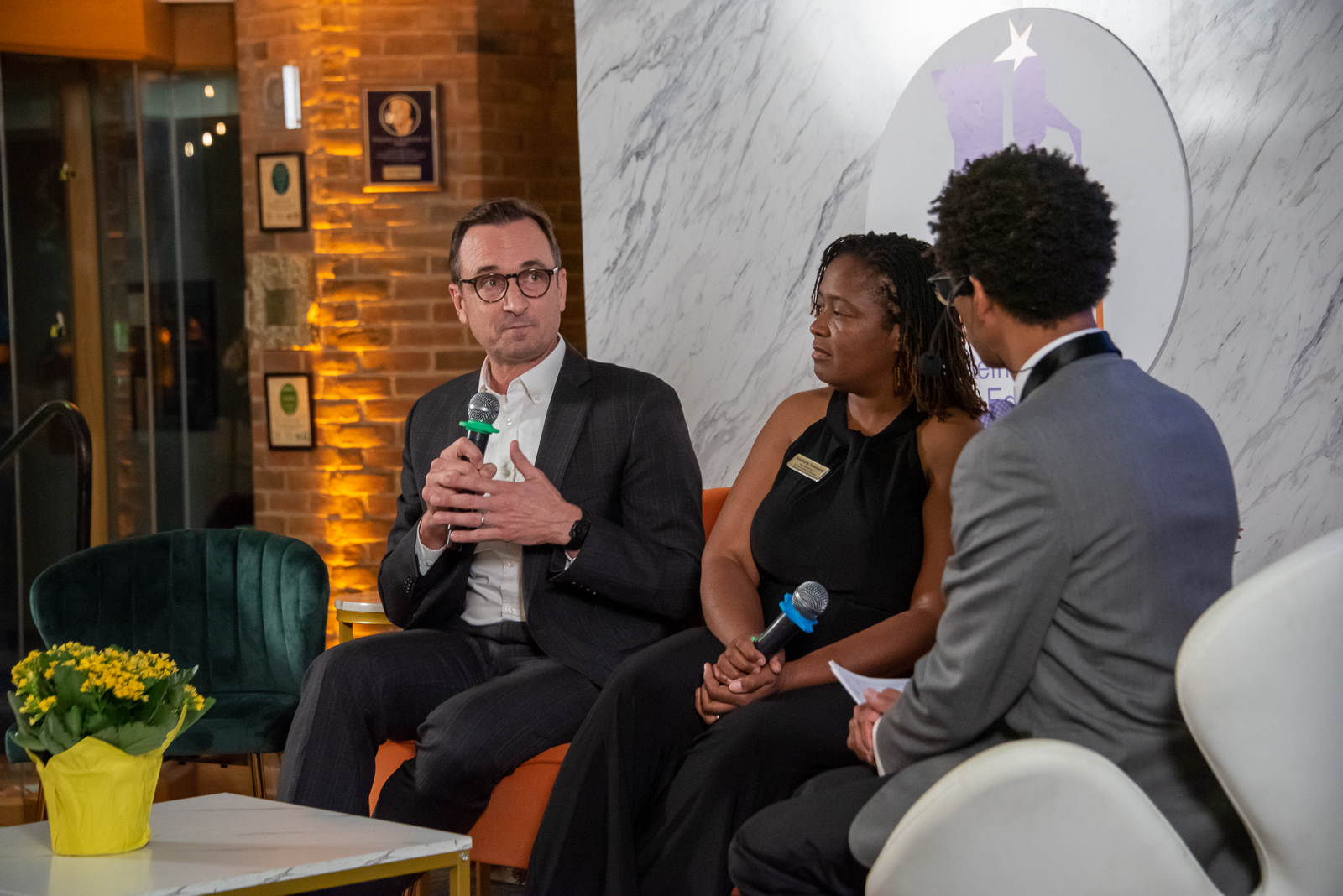
“When I was teaching I saw fifth-graders leaving my classroom, incredibly talented kids, incredibly successful during the time that they were in elementary school going to middle schools, and immediately their successes were thwarted by poorly run schools and difficult challenges that they were facing,” Garrett said, adding that experience led to him starting Project Chrysalis, one of the first charter schools in Texas. “The idea was we need an innovative way to make sure that kids leaving elementary schools had amazing opportunities who had not had access.”
Today Garrett leads a network of six KIPP schools that serve students from Pre-K through high school.
“The idea is many of our students come into our program academically delayed and they come from neighborhoods where they don’t have a lot of great educational options,” Garrett said. “We want to create a path for them to and through college.”
Townsend explained how seeing the opportunities offered by charter schools like KIPP in St. Louis City had inspired her to open The Leadership School in the Normandy region.
“There was choice, but the choice was a private school,” she said. “The choice was a parochial school. The choice required parents to have money. And so we launched The Leadership School, and our mission is really centered around putting students in the driver’s seat of their own education. We want our young people to be leaders of themselves and leaders in their communities. And so it’s amazing to see how quickly students will rise to the occasion when you give them an opportunity to have a voice.”
Celebrating the impact of virtual education
CEAM has long supported virtual education as a key educational alternative. Our parent advocates helped to pass the existing Missouri Course Access and Virtual Education Program (MOCAP) in 2018 and then worked to expand and improve the program with new legislation in 2022.
To celebrate these victories we sat down with the Missouri Virtual Academy’s (MOVA) Career Readiness Program Manager Kelvin Carter during our 2023 IDEA Gala to learn more about virtual education and the possibilities it offers Missouri students.
Carter explained that virtual education programs exploded in Missouri as a result of the pandemic.
“We started with 89 kids in June of 2019,” he explained, “Then the disruption came and we go to a whopping 1,400 students in the state.”
Carter noted that true virtual programs like MOVA are not the same as the hastily conceived Zoom meetings that many families experienced during the pandemic.
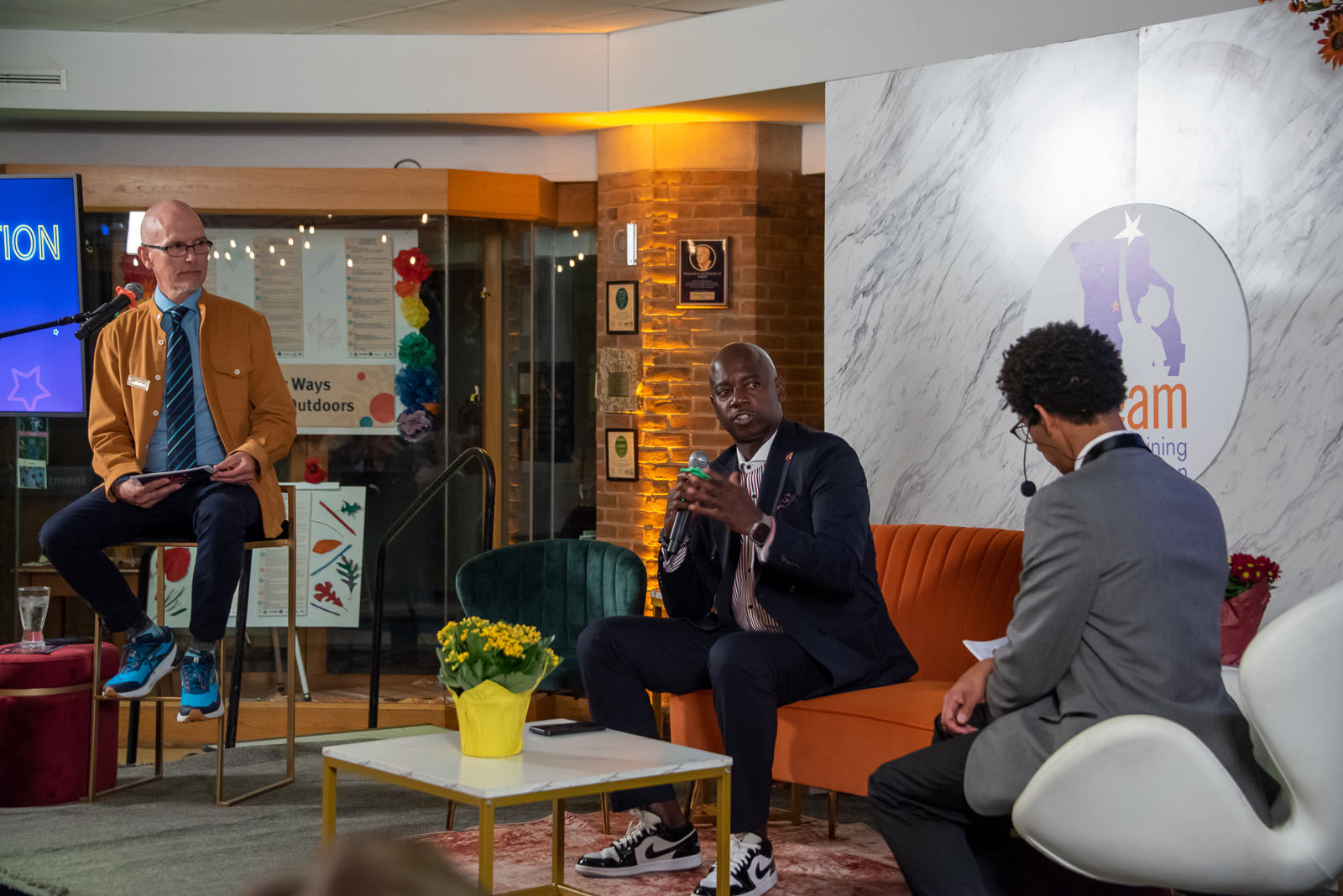
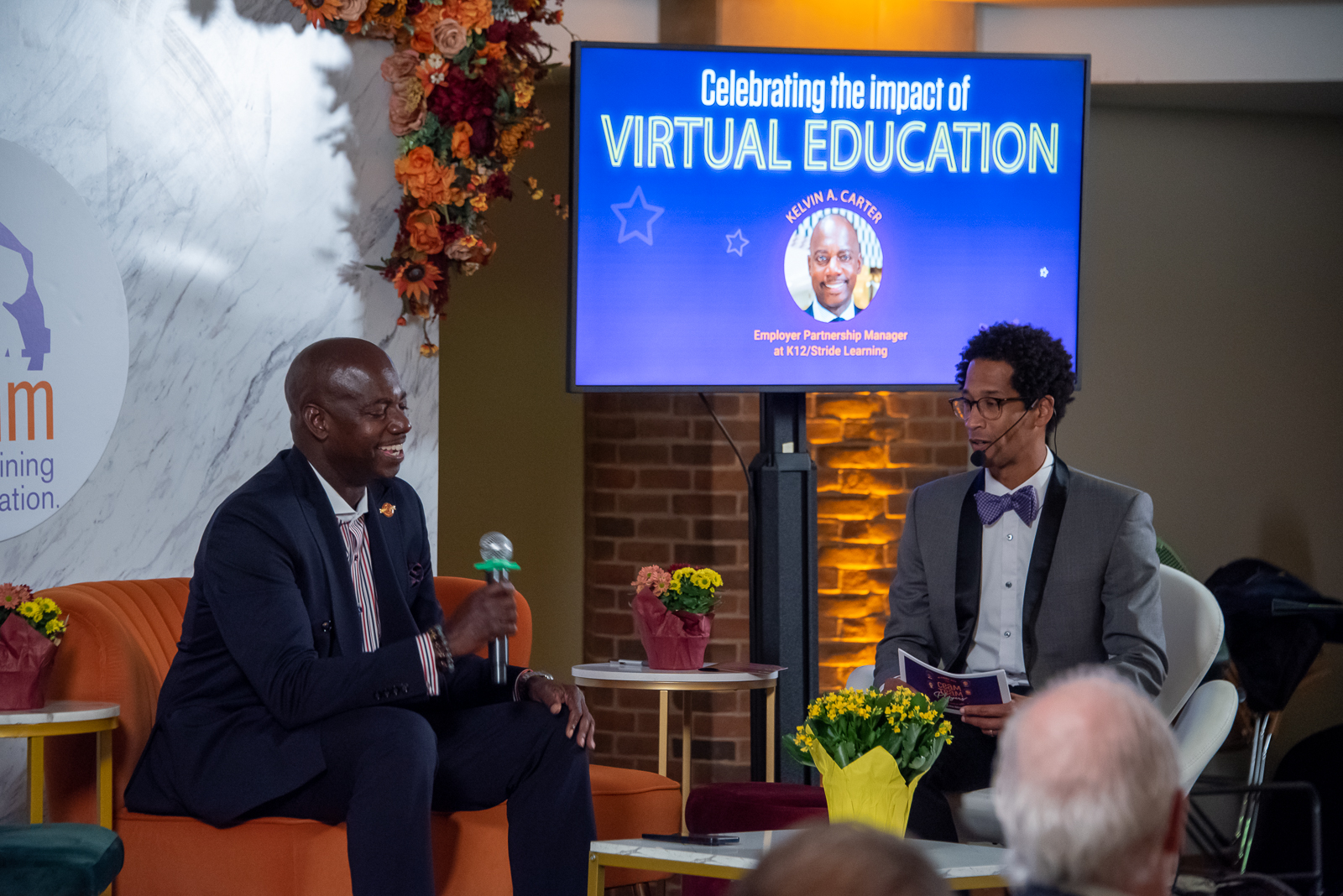
“We like to say that great schools aren’t automatic, but they’re not accidental either,” adding that MOVA works really hard to provide students with all of the materials they need to succeed from the safety and comfort of their homes. “One of the things that’s most amazing to me is when you see the things and items that come to a student’s home. You can only imagine what your kid has in a public school. So we have to supply all those things, every science project, every manipulative, every book. Every kid gets their own computer.”
He said they also focus on providing extracurriculars and workforce-focused enrichment programs including learning how to fly drones and learning journalism through student reporting.
“One of our most unique partnerships right now is, where you get a media pass, you show up in a historically black college football game, you get to go down on the field, and you get to create content,” Carter said. “We’re working right now with the biggest buzz in the country, which is Colorado. We’ll be with Coach Prime in about four weeks.”
That attention to detail pays off for the program, according to Carter.
“Our students tend to stay,” he said, noting that virtual education is not for every student. “Our students actually want to be in our programs. We have about an 87 percent rate of return and we go Kindergarten through 12th grade.”
Celebrating the impact of MOScholars
CEAM has been a leading organization in both the passage and implementation of Missouri’s first-ever private school choice program – the MOScholars Scholarship Program.
CEAM Director of Outreach Cici Tompkins and parent advocate and MOScholars recipient Lisa Smith shared the impact the program has had in its first year and how the program can be expanded and improved in future years.
“It was an incredible first year,” Tompkins said. “There were over 1,300 scholarships awarded and in my position as Director of Outreach, I get to talk to a lot of parents, which is amazing because I just get to hear all of the positive stories. This program is literally saving lives across the state.”
Smith agreed, noting that her son now is able to attend a high-quality school thanks to the scholarship program.
“We’re just thankful to everyone involved in making it possible for Missouri students,” Smith said.
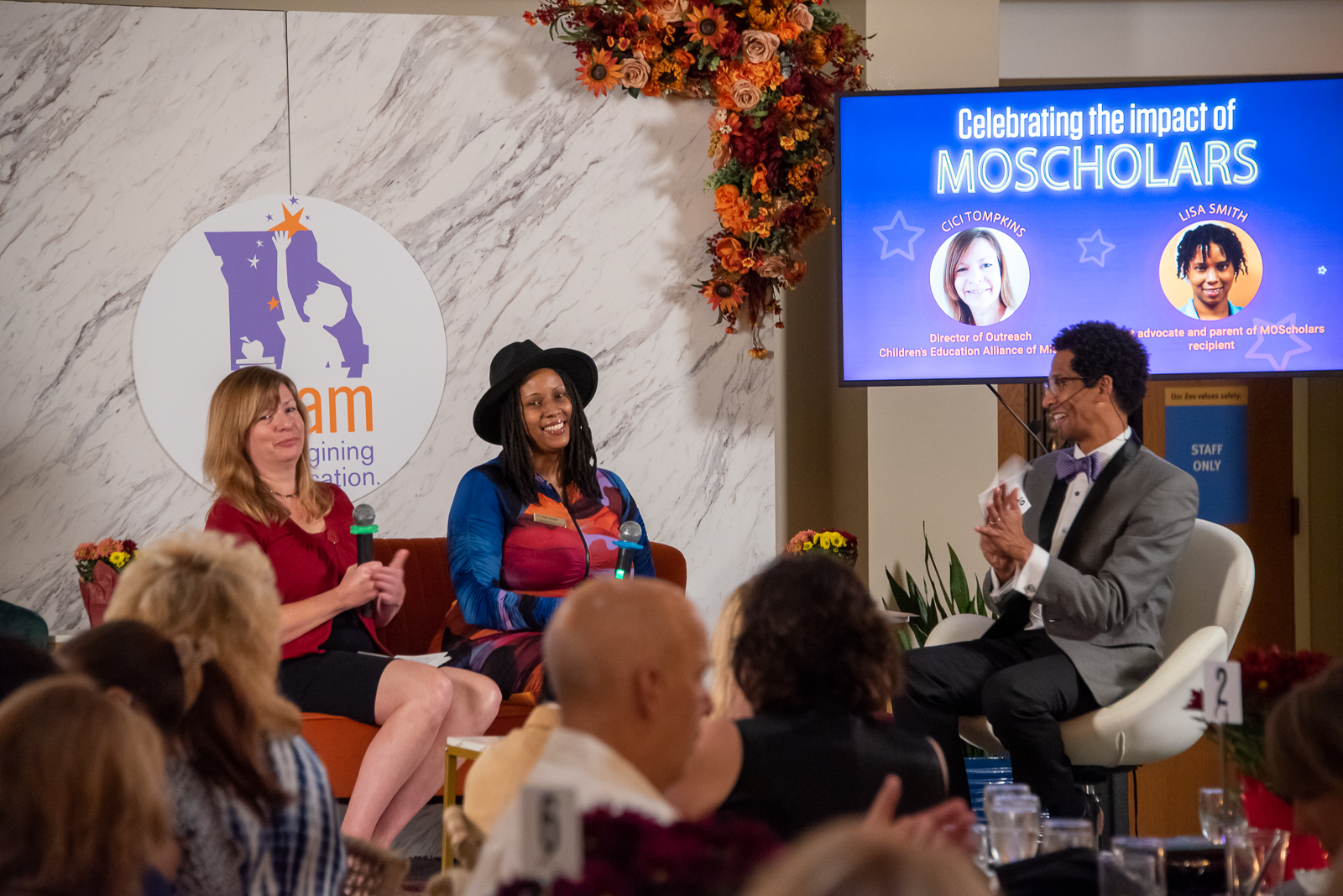
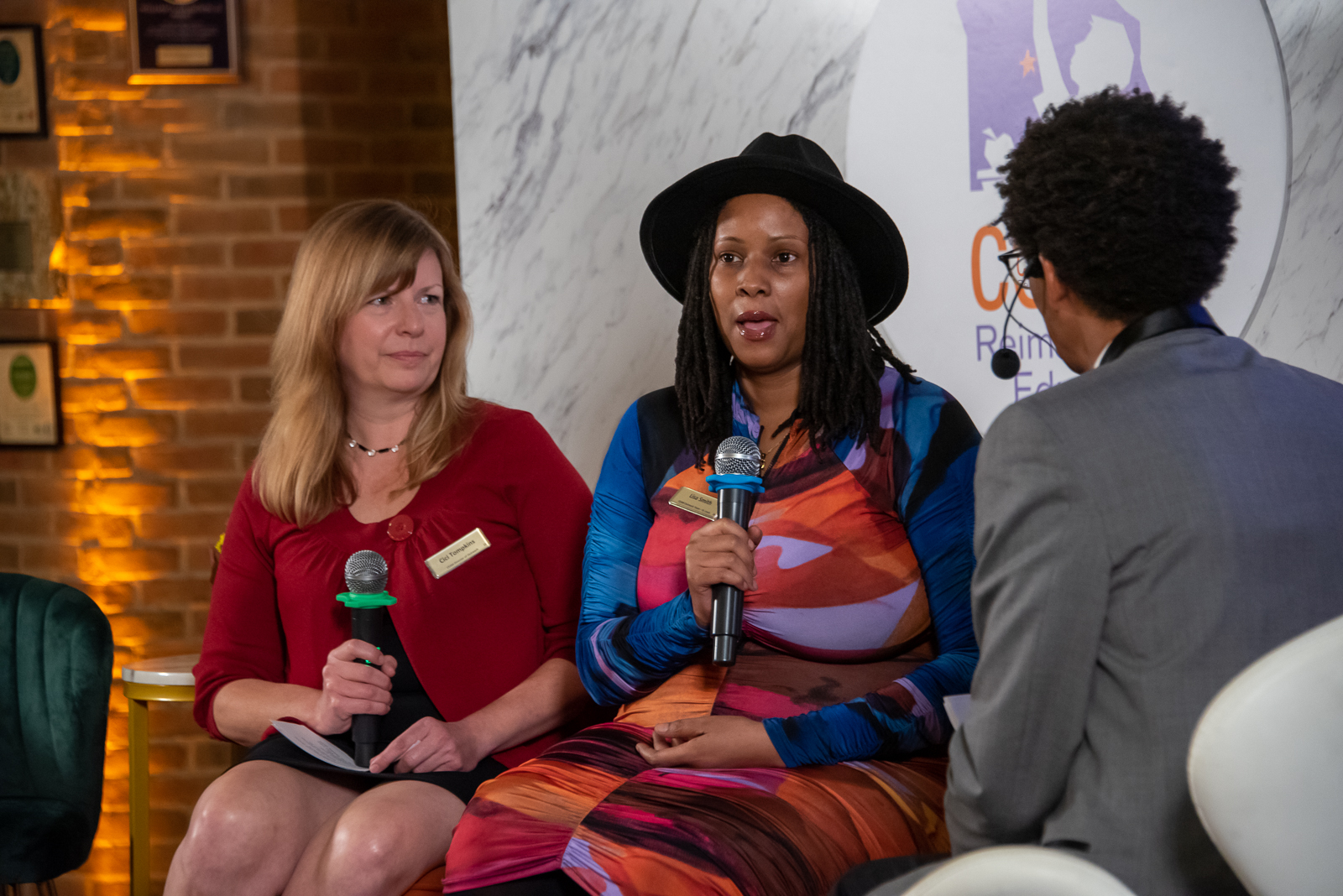
Tompkins pointed out that the program could still help many more children in the state if more people understood how it is funded.
“This whole program is funded on donations through a tax credit program where families or any individuals or businesses that donate to the program receive a 100% tax credit. So you get all of that money back,” she said adding that CEAM has spent much of 2023 raising awareness about supporting the program. She noted that awareness calls made by CEAM have resulted in $200,000 raised for the MOScholars program in the past few months.
Smith said the program served as a beacon of hope for families looking for better educational options.
“The program offers families more school choice options,” she said. “It’s a crucial lifeline to those of us trapped in underperforming school districts or districts that cannot meet our children’s educational needs. I think the program sends a powerful message to the education system in Missouri. The assumption of student enrollment should not be taken for granted. MOScholars has the potential to pave the way for a brighter future in education statewide.”
Celebrating the impact of future innovations
Caitlin Condie, joined the CEAM Team for the final segment of the 2023 IDEA Gala to talk about how collaboration and future innovations could change the face of education.
The founder of Condie Consulting, Condie started her career as a Kindergarten teacher before working for the U.S. Department of Education and later for the Center for Education Reform.
“I worked on programs related to teacher preparedness, educator leadership programs, and then one of the super neat things that I had the opportunity to do was facilitating organized conversations in districts across the country,” she said.
“I would lead organized conversations with parents, teachers, school leaders, policymakers, anybody in that community that touched education,” Condie added. “We would have a conversation with and we would learn about what’s going well, what’s not going well, what needs to be solved.”
Now, as a consultant, Condie uses those experiences to help education advocates find solutions and told gala attendees that many times the answers can be found by just getting the right people to talk together.
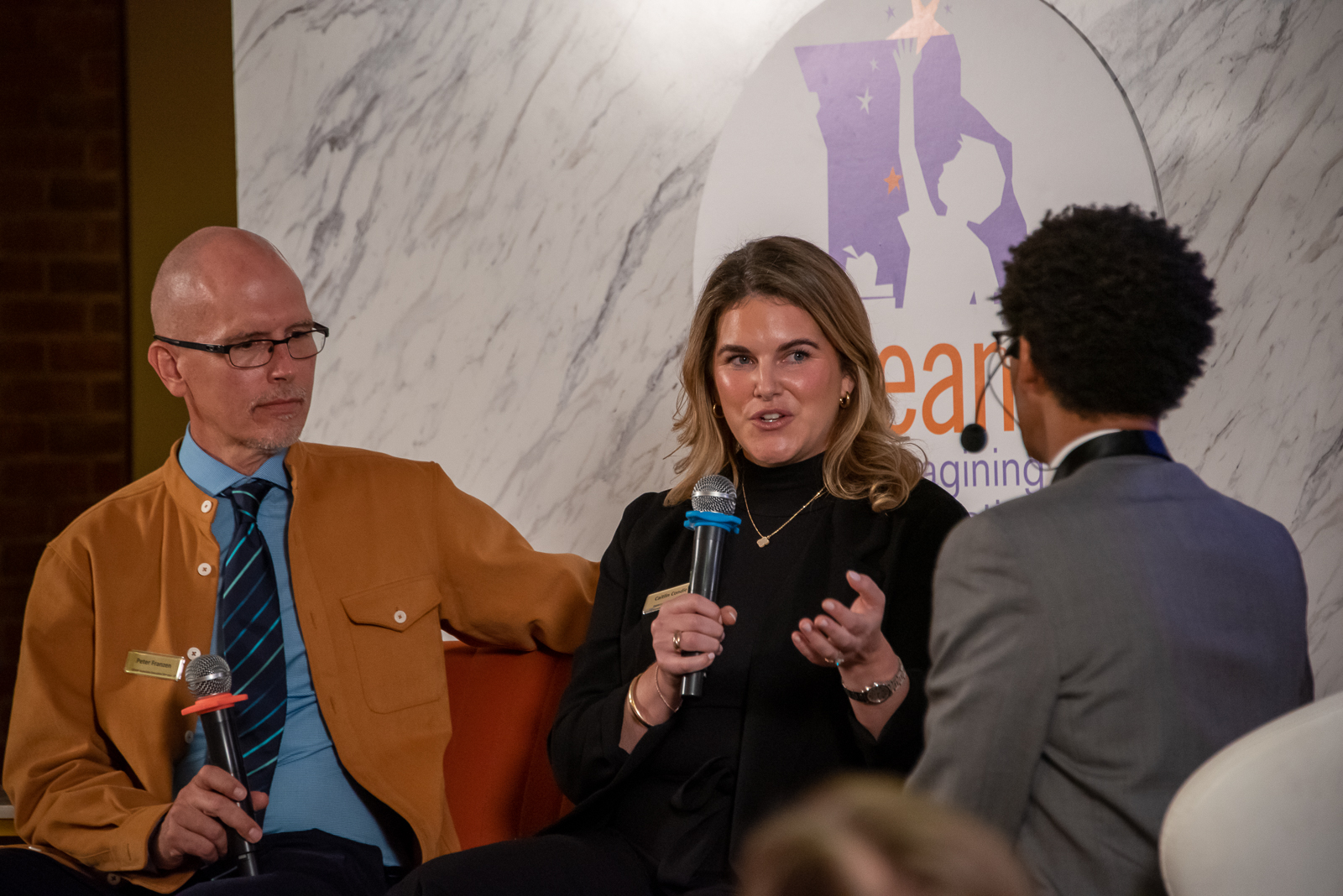
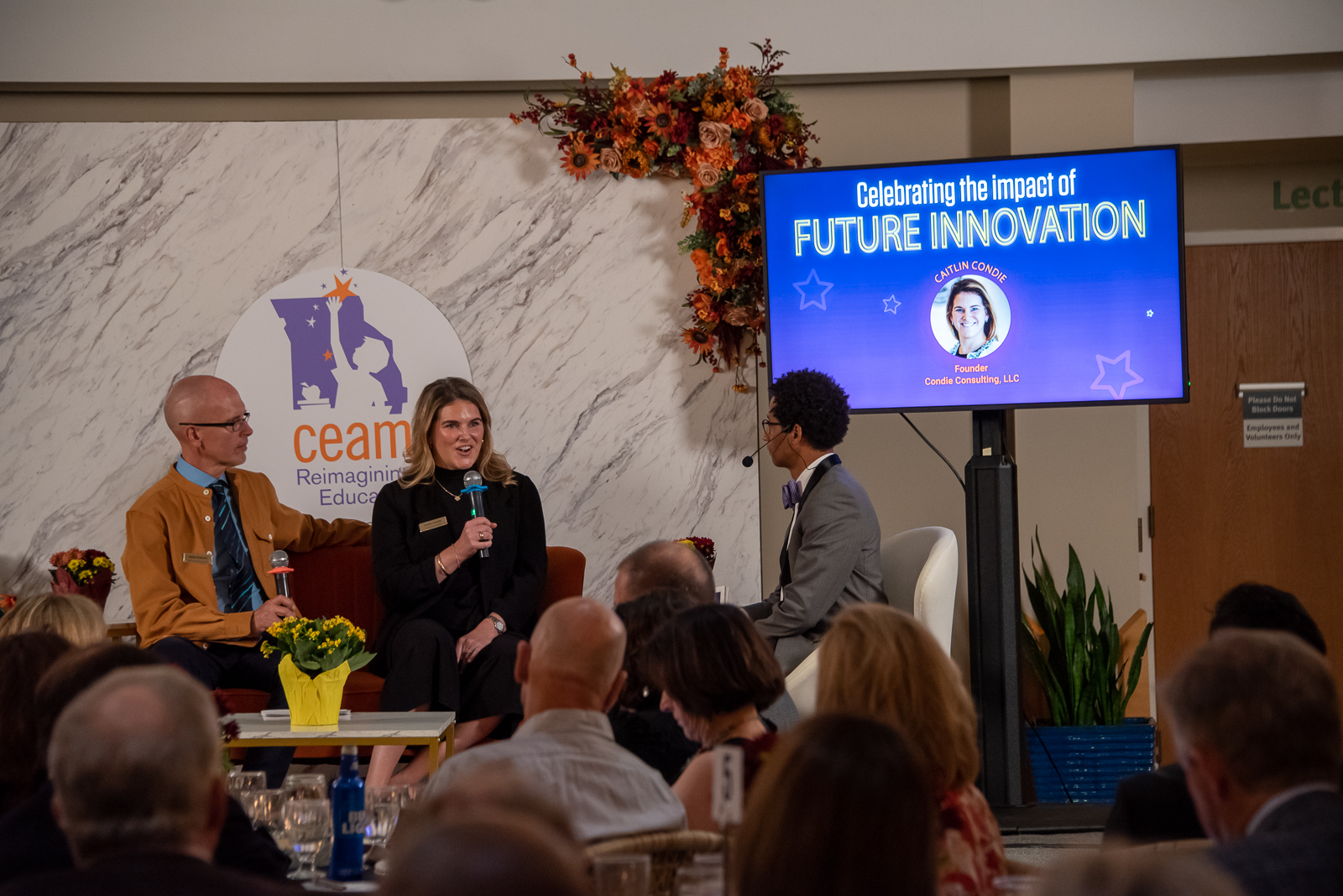
“We operate pretty much at the intersection of policy, practice, and advocacy,” she said. “It’s been so encouraging because what actually you end up realizing is that a lot of the challenges in education that we’re all experiencing from different perspectives, teacher retention, student test scores, whatever it is, all of those challenges, I actually really believe that there are already solutions out there for them. The issue is that we have to connect the people who have the challenge with the solution and then we have to change our perspective that someone is going to give us a piece of paper that just has the solution written on it.”
Condie said micro-schools are a good example of how innovative thinking is changing the educational landscape.
“Essentially, they’re the epitome of this notion of personalized learning,” she said. “Microschools are schools that consist of 10 to 15 students typically and they’re awesome. They essentially allow students or that grouping of students to sometimes focus on a specific theme. So the curriculum is being delivered in a way that is unique to what the group needs. You also create all this other time to supplement with experiential learning opportunities. They’ll do their curriculum at the beginning of the day, and then in the afternoons, they’ll pursue additional interests or opportunities.”
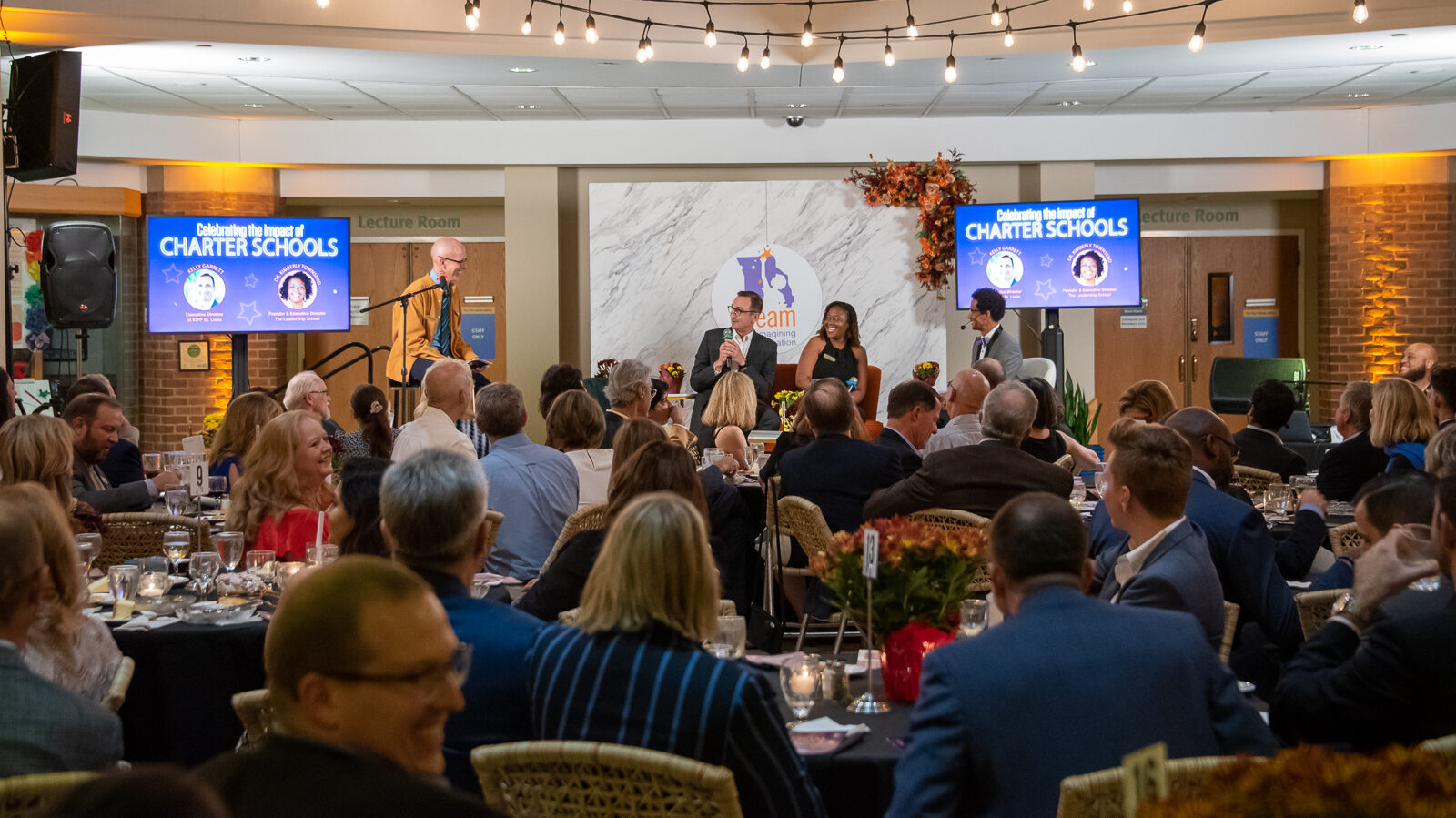
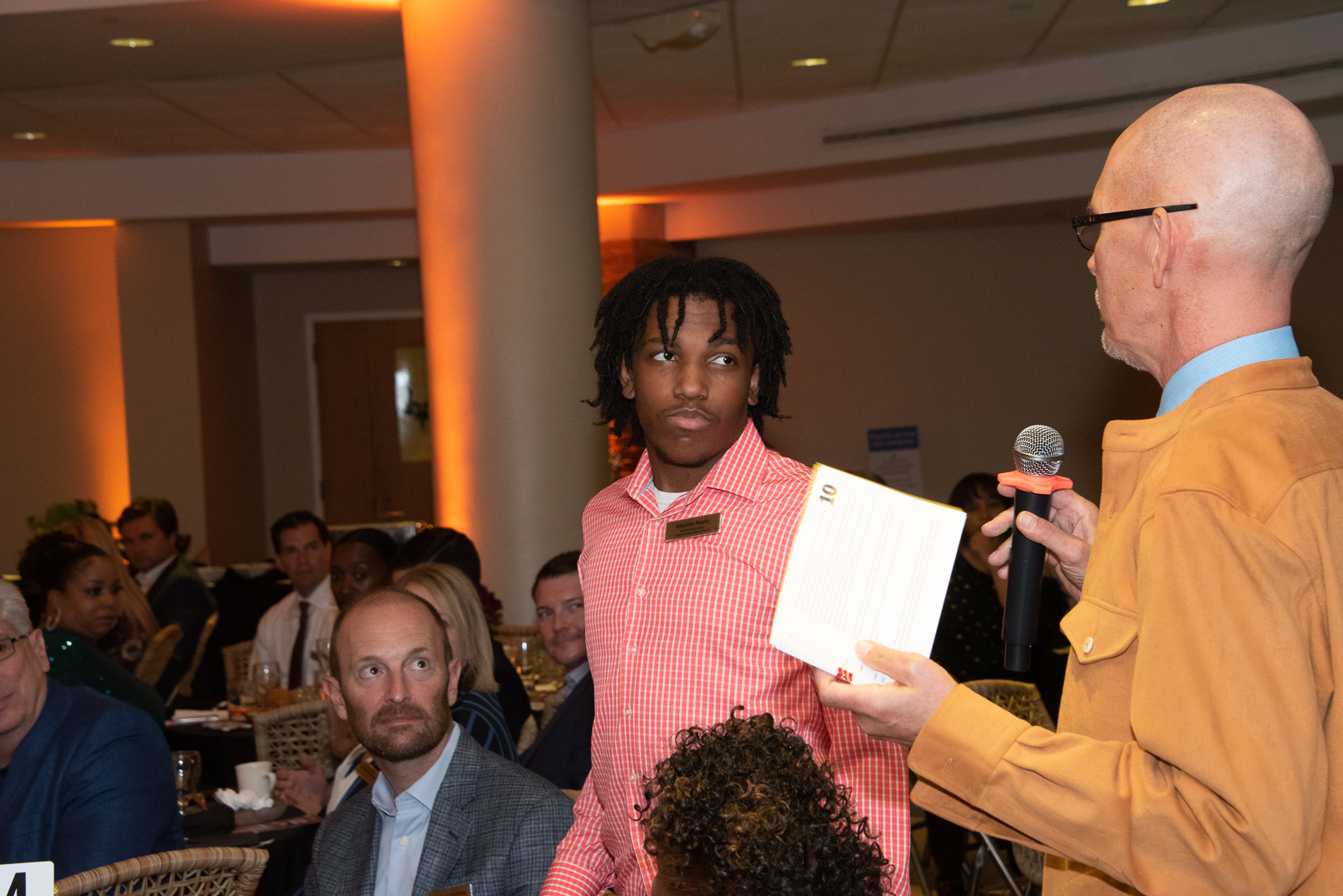
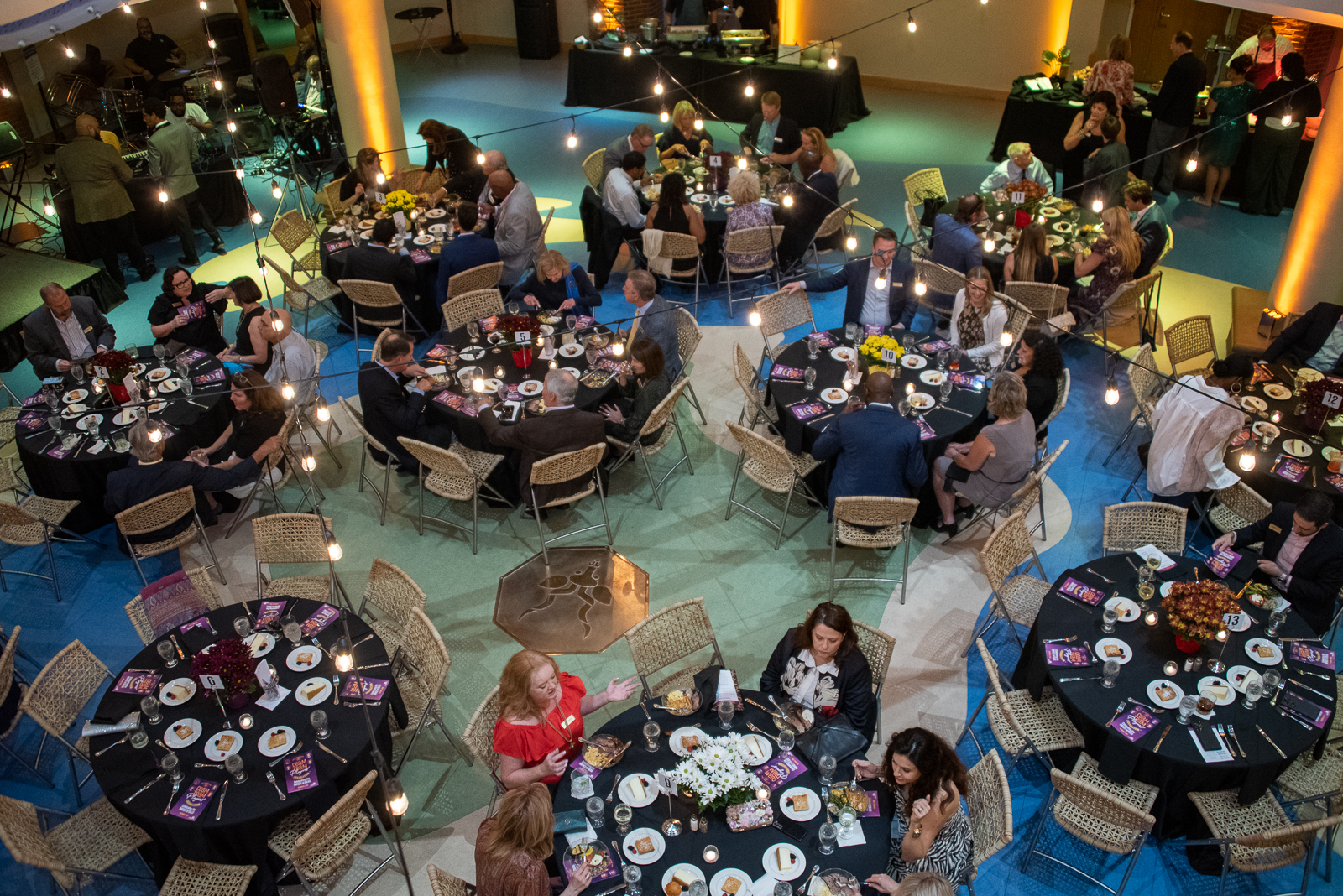
« Previous Post: CEAM, MCPSA offer parent advocacy training sessions
» Next Post: The Future of AI Tutoring: Personalized Learning in 2024
